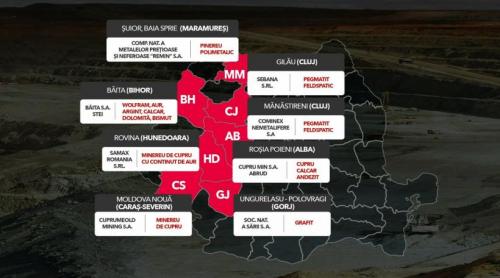
The accentuation of the political crisis in Romania right after the adherence didnât influence the sensational markets - the currency and stock exchange markets. Many voices noticed the lack of impact and the "dissociation" between the autochthonous politics and economics.
The previous political crisis in the countries that adhered to the EU in 2004 creates an elusory feeling. There, the economical processes continue to develop, investments are being made and, despite their fragility, the instruments of the liberal democracy work. However, this is an optimistic perspective of the situation. A more gradate perspective would examine changes in the collective psychology that result in certain political preferences, deviations to extremism, the weakening of the governments, harmful populism and so on. Also, an evaluation of the consequences of a probable deceleration of the economy processes based on the pressures of the globalization should be done as well. A very important aspect has to be taken into consideration: the economy cannot develop on itself! It is useful even in the places where the private sector represents the main public political economic activities: it has to supply fundamental public goods necessary for the functioning of the private sector. The humanization of capitalism was done with the use of public political strategies. The long term paralyses lead to excesses, errors, block the public politics, which takes the economy in unwanted situations. There are such examples in mature economies in the Union, caused by the inability of certain governments to take the necessary reforming measures. For example, Luca Montezemolo, the FIAT boss, saw that there was a risk to hear the people speaking "about Italians, but not about Italy", due to the fact that the internal political strategy would create a negative country image. There are characteristics of the Romanian society that donât allow cold-bloodiness regarding the political conflicts. Sooner or later, the obvious political crisis will cause changes in the economy. Especially when the fight for power regards the control of the public resources, of the EU funds, and satisfying the party clientele. The public political strategy has to be in accordance to certain tendencies and processes. As far as the social aspect is concerned, the following issues have to be discussed: the disturbances caused by migration in numerous local communities; the inequalities in rising incomes that affect the social cohesion and increase the anomalies; the deterioration of the educational process and the scholar abandonment; the lack of trust in the state and democratic institutions (including the justice). As far as the economy is concerned: tensions caused by the erosion of the competition of many autochthonous companies; excessive external deficits; the presence of the foreign money that brings benefits as well as disadvantages if the public political strategy doesnât conciliate the repatriation of the profit with the need of social cohesion and identity aspects. The one who ignores the identity issues simply helps to develop the political extremism. As far as the political aspects are concerned: we have confuse political doctrines, and problems of effective behavior of certain leaders, as well baldly opportunism; a lot of citizens are fuddled with the political quarrel, with the personalization of the political conflicts, they are disappointed with the cynicism, immorality, double language. This state favors populism and extremism. Public speeches flooded by Manichaeism and Jacobinism, which split the society into good vs. evil, "extra-communications" and intolerance donât help the internal political process. All these weaken our young democracy.Translated by SORIN BALAN
Citește pe Antena3.ro

















